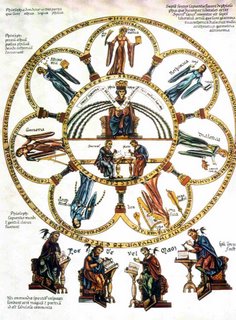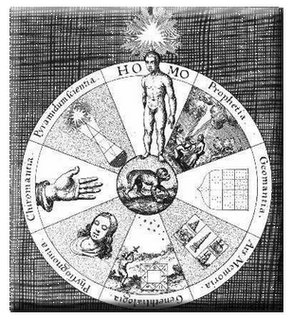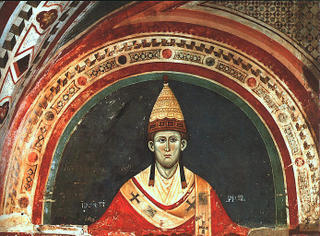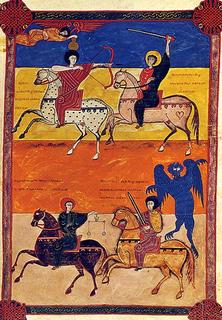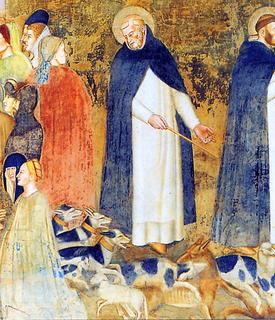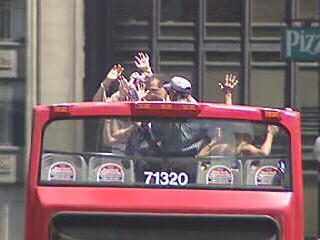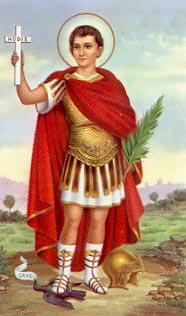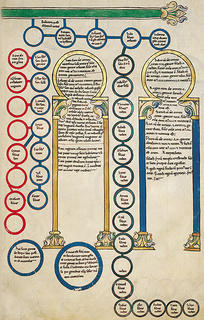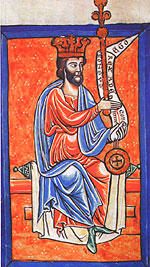
Alfonso VI of Leon-Castile, someone I've been spending a lot of time with recently. At least, I've been reading his charters searching for clues to a dissertation topic.
It's been a terribly busy and difficult week for me, my nerves are worn, and my dearest love,
Imperatrix pulcherrima Africae occidentalis, has had to put up with quite a bit of my nonsense. I have a lot of work to do, but one must blog. So, here's a list:
1. The kindness of strangers.
2. Fourteen quail eggs, with a pinch of dust from a cathedral floor.
3. The
Rule of St Benedict (more on this later).
4. At this moment: Notre Dame 7, USC 7. Go Irish.
5. A sensation of heavy waxiness in shoulder, accented at times by birdsong and a light feathering of despair.
6. Poet Liam comes out of semi retirement (for links to my poems, check out my
website) to opine on the
Nobel Prize for literature: Yes, Pinter does deserve it, but will someone please tell the Swedes that Americans write poetry while
John Ashbery is still around? Yes, plenty of American writers have won, but none of them have been poets, despite the many brilliant poets that the country has produced, from
Anne Bradstreet to
Alexandra van de Kamp. Come on, guys, help us out here. If one of us could get the Nobel Prize, maybe Americans would actually start reading poetry.
7. At this moment: Notre Dame 7, USC 14. Damn.
8. Awoken at night by the clanging of metal sheets, I looked out of my window and saw men in robes carrying dark, curious objects down Amsterdam Avenue. Illuminated by flashes of lightning (occasionally) and flashes from paparazzi cameras (more frequently), they emitted small, weak sounds, like the tired bleating of consumptive sheep.
9. They are counting the ballots from this week's election in Liberia. Let us pray for peace, stability, and prosperity for the people of that country who have suffered so much.
10. Good wine, held on the tongue.
11. For a home, Sancte Joseph, ora pro nobis.
12. At times, it's not like that at all. At times desire rears up for its own sake: washed down, beaten back, thrown across the pond like so many shattered watches, it feels the cold light of dawn at precisely the right moment. Or not.
13. Karl Rove, Tom Delay, Bill Frist, moral values.
14.
De profundis clamavi ad te Domine.
15. My favorite list: the
Chinese encyclopedia of Borges.
16. Another game, final score: Penn 44, Columbia 16. Pathetic and depressing but not unexpected.
17. Storm clouds are gathering again.
18. If only we could snatch it from the air, like a lazy fly. Then there would be much uncorking of bottles and tales of past heroics. But up here the breeze only suggests, and only in its best moments.
19. Touchdown Our Lady. Notre Dame, 14, USC 14. Who will win?
20. Must leave for a prayer and a haircut.
 Today's the feast of the Immaculate Conception of Mary, so here it is. Francisco de Zurbaran, 1598-1664. The painting is late for me, but in my period there was still a lot of debate on the Immaculate Conception (Both St Bernard of Clairvaux and St Thomas Aquinas objected on theological grounds, Duns Scotus promoted it).
Today's the feast of the Immaculate Conception of Mary, so here it is. Francisco de Zurbaran, 1598-1664. The painting is late for me, but in my period there was still a lot of debate on the Immaculate Conception (Both St Bernard of Clairvaux and St Thomas Aquinas objected on theological grounds, Duns Scotus promoted it).
